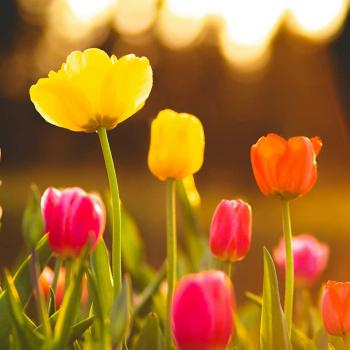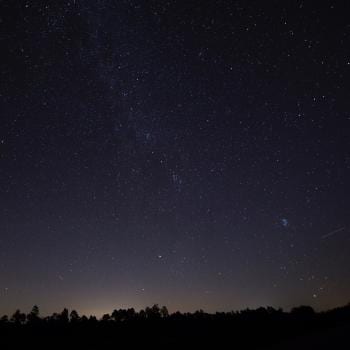On the eve of the shortest day of the year, when darkness envelopes the earth, we await the coming light and affirm that within the womb of darkness, light emerges, and growth occurs, often when we least expect it.
Sometimes, in the midst of grief, when we are in the depths of loss and depression, the light seems faraway, impossible to find again. Out of the depths, we cry and sometimes all we hear is our own voice.
And yet, in the darkness the eye begins to see, so wrote American poet Theodore Roethke. At first, when darkness descends, we feel lost, as if walking through the woods a on moonless night. But, then we discover little lights in the dark wood – and our eyes adjusting to the dark, and glimmers of something in the distance. In the darkness, we discover light enough to find our way home.
As a grandparent, I am gaining insights into my own childhood. When I was a small boy, I was afraid of the dark. Shadows loomed large and threatening, and in the darkness, I felt alone and when my imagination got the best of me, I ran to my parents’ room seeking comfort under their covers. So, it was with my own son and grandchildren.
Darkness often brings confusion, and in the confusion of our grief, we often think the pain will never end, yet like the Solstice the light will gradually grow brighter, though we will always grieve our losses.
Yet, in the darkness, there is hope. As a parent and grandparent, like my parents, I’ve learned to provide night lights around the house. Night lights don’t always take away the loneliness or the need for a reassuring touch, but they help us orient ourselves and find our way.
The scriptures tell us darkness has a light of its own, and that darkness isn’t always negative. In dark soil, seeds germinate and push toward the light. In the darkness of the womb, a baby grows, and on the darkest night, the eye begins to see. We may discover new hope amid grief; new life despite the reality of death.
On the darkest and longest night of the year, Jesus’ birth is celebrated. In the ancient world, people feared the winter nights: they worried that darkness would swallow the light, and the sun would be no more. What joy they felt when the days grew longer!
In the darkness of winter – in the darkness of our lives – we too need the reassurance that light will come – that we will find a way through our grief, our doubt, our confusion….At Christmas, and in the days beyond Solstice, we affirm that the light we need is already here, that a light shines within a lowly stable, and it changes everything: our fears of darkness are cast out and we can with the shepherds find our way to places of birth and beauty.
A star guides the magi from the East, and this year we need to let God’s light guide us as well: we need to rise up despite the heaviness of grief and the challenges of our time, when leaders have lost their reason and traumatize the nation with their rants, and be ready for adventure, for God’s light has come; despite our grief and anxiety, we are ultimately safe and give thanks for those we have loved; and a child is born to us and in us inviting us to affirm – “On the longest night, the light of the world shines in us. In the midst of confusion, the light of the world guides our path. In uncertainty , the light of the world gives us direction and bring us joy.”
+++
Bruce Epperly is a Cape Cod Pastor, professor, and author of over fifty books including his Christmas Trilogy: “The Work of Christmas: The Twelve Days of Christmas with Howard Thurman,” “I Wonder as Wander: The Twelve Days of Christmas with Madeleine L’Engle,” and “Thin Places Everywhere: The Twelve Days of Christmas with Celtic Christianity,” and “Piglet’s Process: Process Theology for All God’s Children.”













